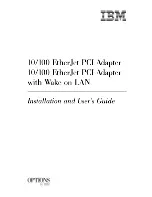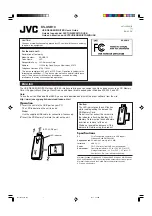
PCI-1710U Series User Manual
20
Chapter 3 Signal Connections
3.1 Overview
Maintaining signal connections is one of the most important factors in
ensuring that your application system is sending and receiving data cor-
rectly. A good signal connection can avoid unnecessary and costly dam-
age to your PC and other hardware devices. This chapter provides useful
information about how to connect input and output signals to the PCI-
1710U cards via the I/O connector.
3.2 Switch and Jumper Settings
PCI-1710U cards have one switch for BoardID setting.
Figure 3.1: Connector and Switch Locations
BoardID settings are used to set a board’s unique identifier when multiple
identical cards are installed in the same system.
PCI-1710U cards have a built-in DIP switch (SW1), which is used to
define each card’s unique identifier. You can determine the unique identi-
fier in the register as shown in Table 3.1. If there are multiple identical
cards in the same chassis, the BoardID switch helps differentiate the
boards by identifying each card’s device number with the switch setting.
The BoardID switch’s unique identifier has been set to 0 at the factory.
Summary of Contents for PCI-1710HGU
Page 1: ...PCI 1710U Series 12 bit Multifunction Cards with Universal PCI Bus User Manual...
Page 12: ...PCI 1710U Series User Manual 6 Figure 1 1 Installation Flow Chart...
Page 24: ...PCI 1710U Series User Manual 18...
Page 35: ...2 APPENDIX A Specifications...
Page 41: ...35 Appendix A...
Page 42: ...PCI 1710U Series User Manual 36...
Page 43: ...2 APPENDIX B Block Diagrams...
Page 44: ...PCI 1710U Series User Manual 38 Appendix B Block Diagrams...
















































